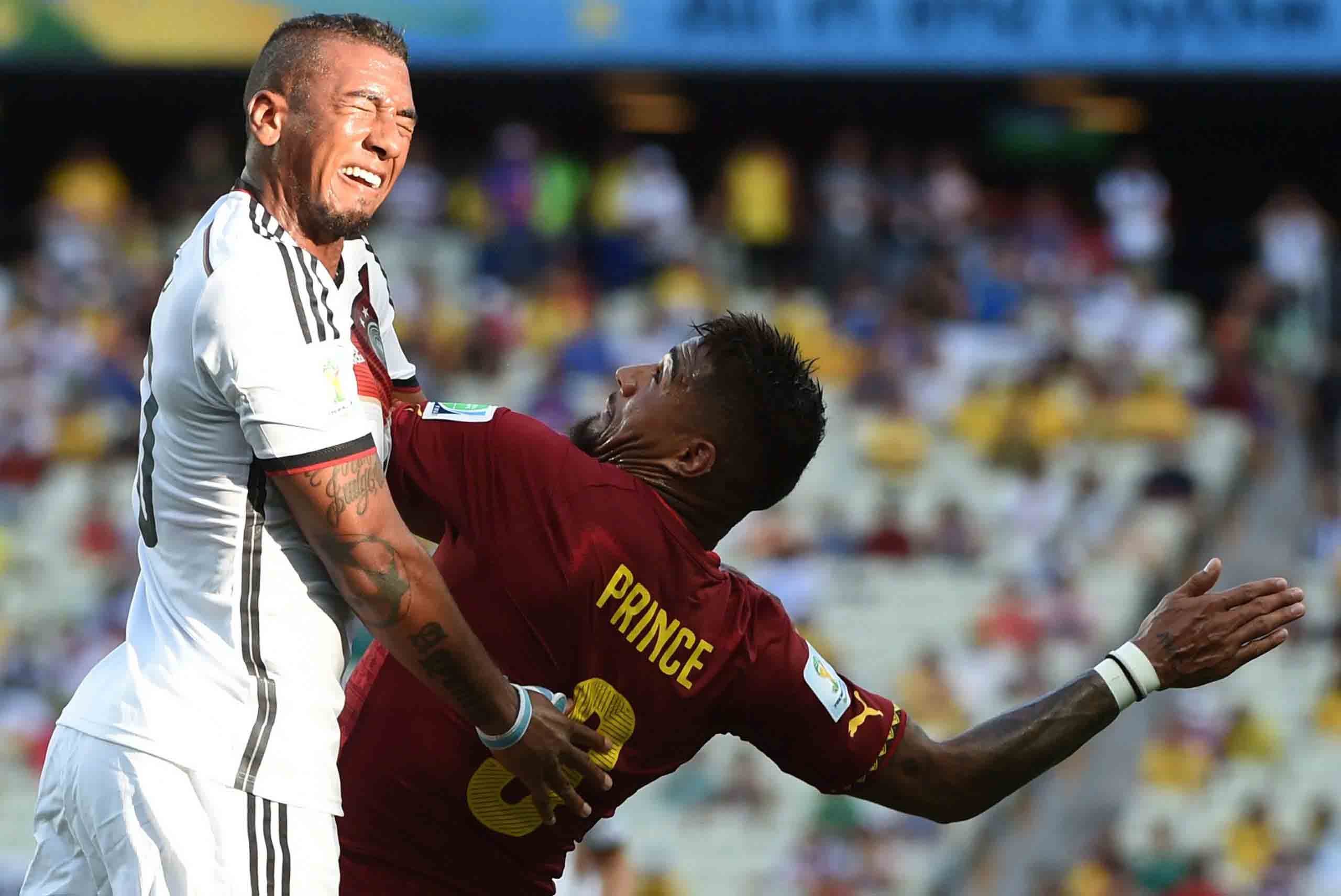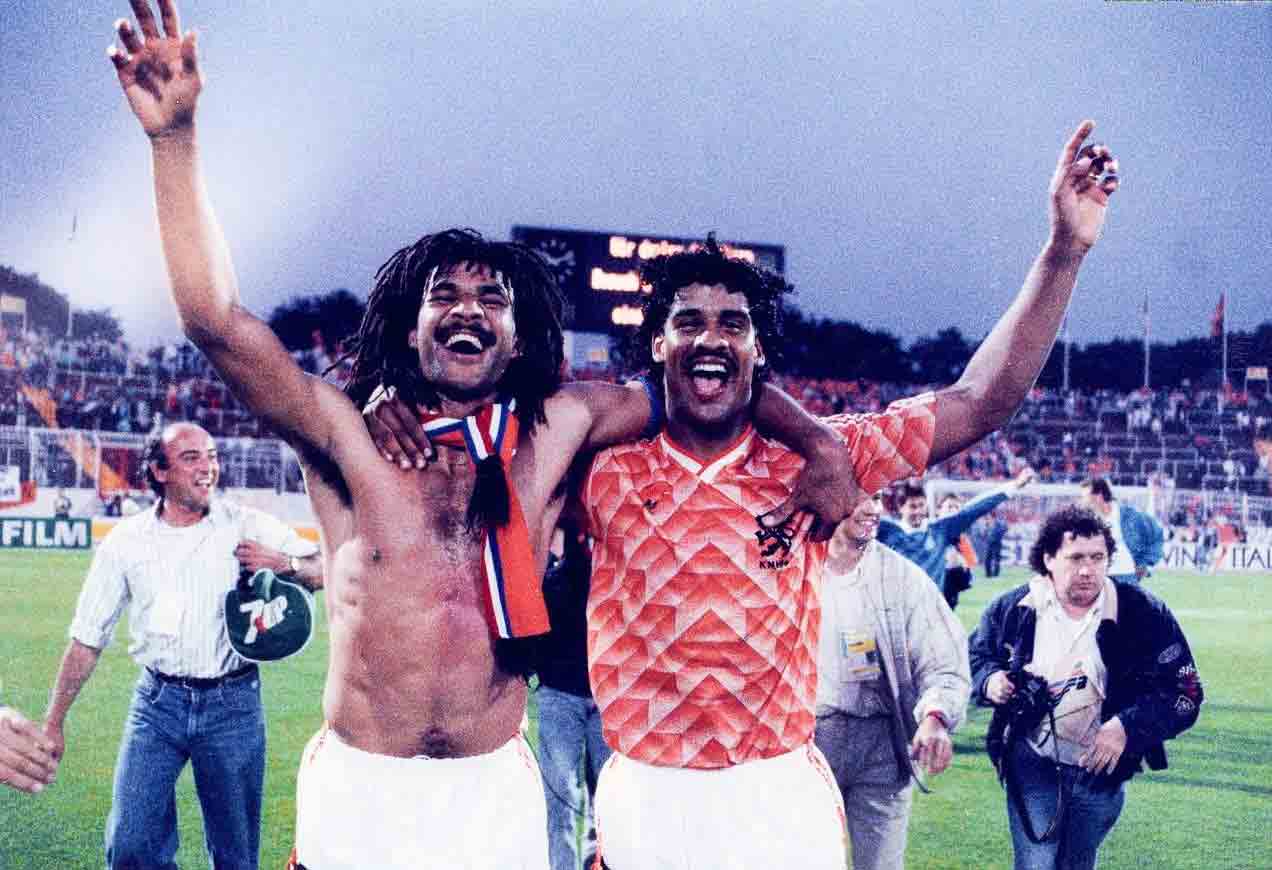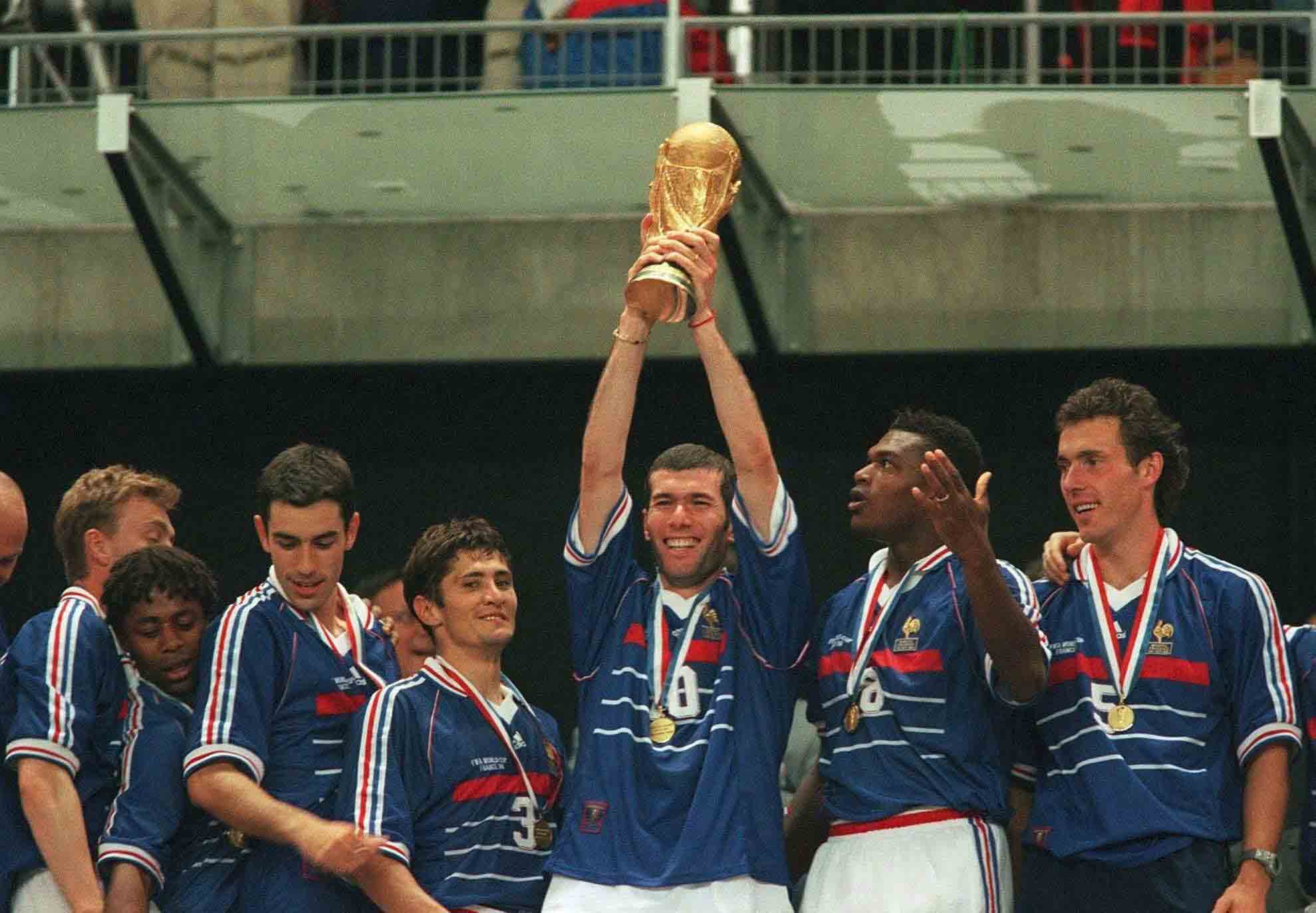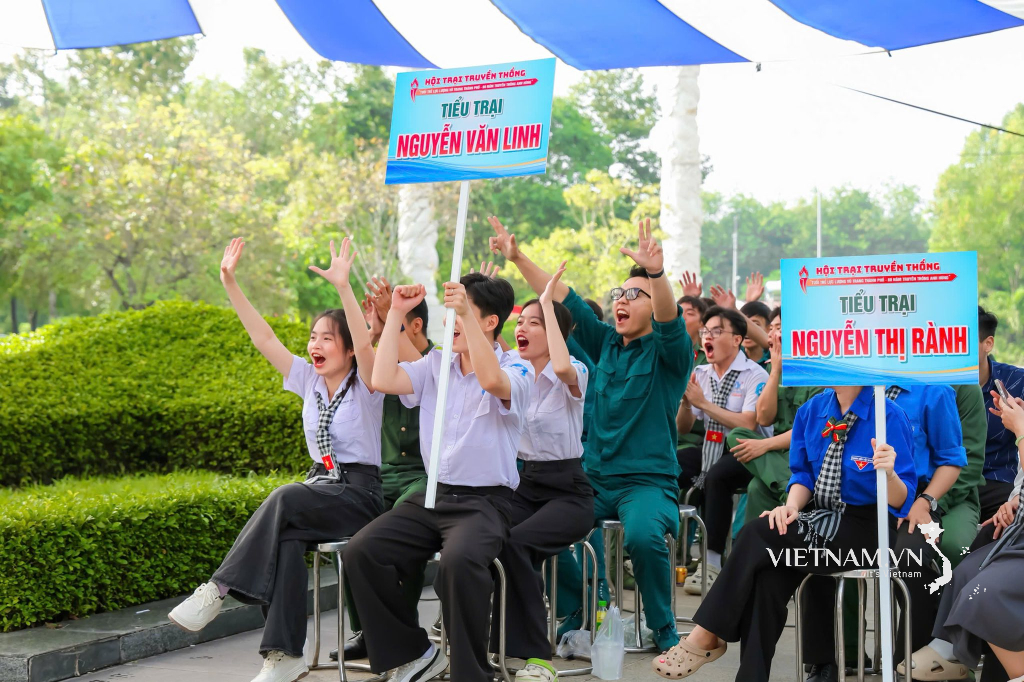Two or three decades ago, the media excitedly reported on the appearance of a player born in one country but playing for another country's national team in Europe. Now, that's a global phenomenon, because society has changed drastically.
A colorful social picture
In 2010, German President Christian Wulff awarded the "Silver Laurel Leaf Award" to members of the German national team. This is the highest award in German sports , given only to those with outstanding achievements.

Brothers Jerome Boateng (Germany, left ) and Kevin-Prince Boateng (Ghana) faced each other at the 2010 World Cup.
That year, Germany finished third in the World Cup. In their previous 14 World Cup appearances, Germany had won three times and finished second four times. So what was so outstanding about finishing third in the 2010 World Cup that it warranted a special medal? Both President Wulff and Chancellor Angela Merkel explained in the press: "This 'German' team is a perfect reflection of a diverse and multicultural German society!"
In the German squad for the 2010 World Cup, half of the players were of Tunisian, Turkish, Nigerian, Polish, Brazilian, Ghanaian, Bosnian, and Spanish origin. Notably, Jerome Boateng (Germany) and his older brother Kevin-Prince Boateng (Ghana) became the first pair of brothers in history to directly face each other on the World Cup pitch (in 2010).
A similar record should have been set earlier, and not by the Boateng brothers. Before the 2006 World Cup, the entire Dutch football community was eagerly awaiting the outcome of Salomon Kalou's (from Ivory Coast) naturalization application. However, the Dutch Minister of Immigration, Rita Verdonk, rejected all requests, stating that Salomon Kalou had to meet all requirements and fulfill the stipulated time period before being granted a Dutch passport.

Ruud Gullit (left) and Frank Rijkaard are of Surinamese origin but have helped the Netherlands national team achieve great success.
At that time, Salomon's older brother, Bonaventure Kalou, was playing for Ivory Coast – a team in the same group as the Netherlands at the 2006 World Cup. Because Salomon Kalou didn't manage to obtain Dutch citizenship in time, he missed the World Cup. He left Feyenoord, moved to Chelsea, and a year later joined the Ivory Coast national team.
The story of Salomon Kalou and the German national team shows that sometimes it's more about social and political issues than football. Every place is different, and even in the same place, the situation can be different at different times. All of this creates a diverse and colorful picture.
Typical cases
The Netherlands (during the tenure of Immigration Minister Rita Verdonk) decided not to prioritize Salomon Kalou's swift naturalization to play for the national team, but in the 1980s and 1990s, Dutch football "took off" thanks to the emergence of numerous players born in or of Dutch origin in Suriname. Suriname is a former Dutch colony that declared independence in 1975.
Having reached the World Cup final twice in a row (1974, 1978), the Dutch national team immediately "returned to its old ways" after the departure of the generation of Johan Cruyff and Johan Neeskens, consistently missing out on major tournaments. It wasn't until the arrival of Ruud Gullit and Frank Rijkaard that the Dutch team, with its distinctly different style of play, once again soared. The Netherlands won EURO 1988 and since then have never returned to their previous mediocre level. Gullit and Rijkaard were the first generation of players of Surinamese descent in the Dutch national team. Following them were Patrick Kluivert, Clarence Seedorf, Edgar Davids, Michael Reiziger, Winston Bogarde… From Gullit's time to the present day, the Dutch national team has never lacked players of Surinamese descent.

The French team that won the 1998 World Cup had many players who were not of French origin.
But it's not the Netherlands, but France that has the strongest social ties to its former colonies in football. The 1998 World Cup-winning French team consisted entirely of top players of either origin or birth from Senegal (Patrick Vieira), Ghana (Marcel Desailly), Algeria (Zinedine Zidane), Guadeloupe (Thierry Henry, Bernard Diomede, Lilian Thuram), New Caledonia (Christian Karembeu), etc. Their 1998 World Cup victory was considered a huge triumph for both France and Europe, because at that time, the far-right ideology of Jean-Marie Le Pen ("give the French national team back to the French") was on the rise, threatening the political and social stability of Europe.
In contrast, Senegal, in their first World Cup appearance (2002), not only surprised everyone by beating defending champions France in the opening match but also reached the quarter-finals. The Senegal squad at the time included 21 out of 23 players playing in France, many of whom had never even returned to Senegal except to represent the national team. They were "French players," rather than "Senegalese players." But of course, they were all legally eligible and entitled to represent Senegal according to the rules.
BECOMING A GLOBAL STORY
Switzerland has never had colonies. However, at EURO 2024, the Swiss national team had three players of Albanian origin, as well as players of Greek, Spanish, Chilean, Turkish, Tunisian, Dominican Republic, Cameroonian, Nigerian, Ghanaian, Senegalese, South Sudanese, and Democratic Republic of Congo origins. This is a consequence of migration trends in recent decades. Similarly, but in the opposite direction, 18 players born abroad still represented Albania at EURO 2024.
In the 1990s, the press was enthusiastic about Donato, simply because he was a Brazilian player who played for Spain at EURO 1996, or why Nigerian-born Emmanuele Olisadebe was in the Polish national team at the 2002 World Cup? Now, almost no national team turns its back on players from outside their footballing background anymore. Even the Brazilian team has Andreas Pereira (born in Belgium, raised and played mainly in Europe, only his father is Brazilian), or Germany (at EURO 2024) has Waldemar Anton, who was born all the way in… Uzbekistan! (to be continued)
Source: https://thanhnien.vn/ca-the-gioi-dang-dung-cau-thu-nhap-tich-185241001004328584.htm
















































































































Comment (0)